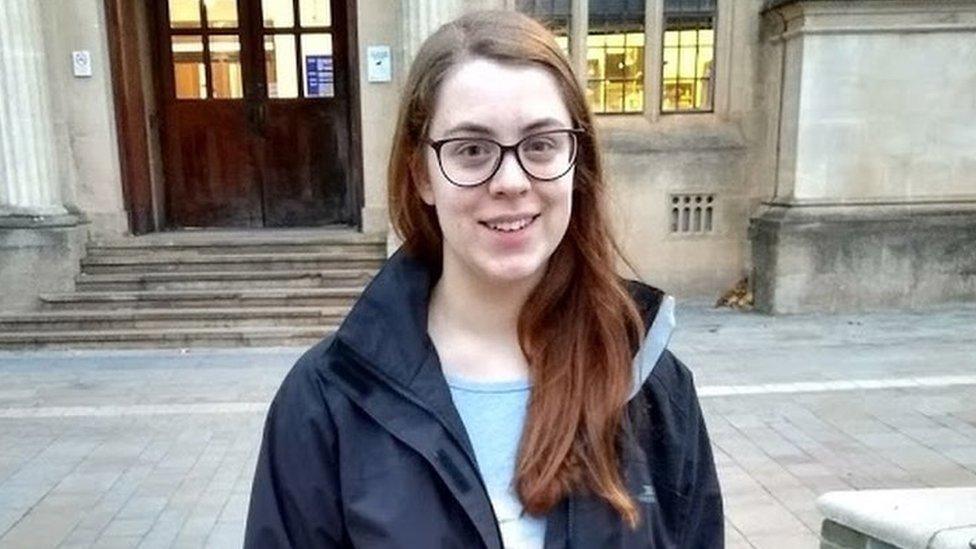Natasha Abrahart: University aims to appeal ruling over student's death
- Published
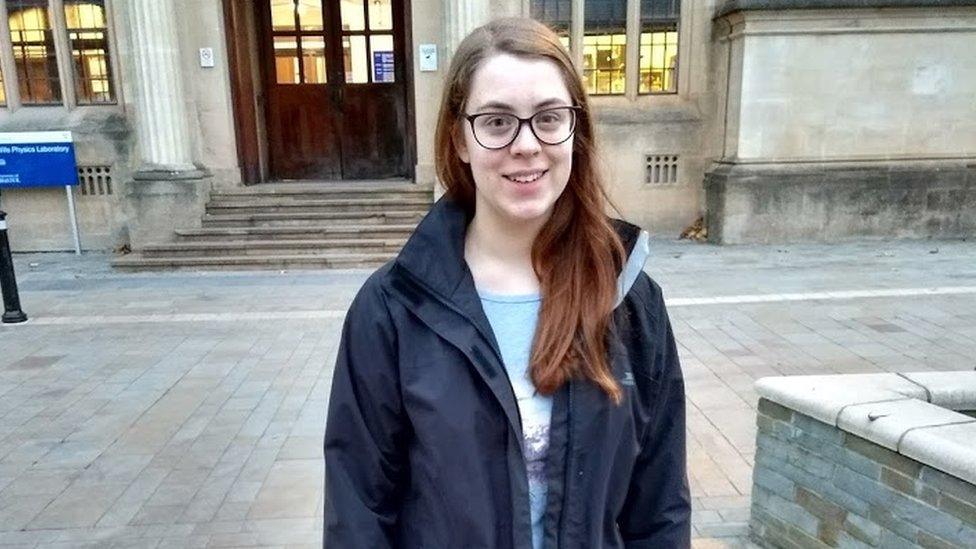
Natasha Abrahart was a second-year student at the University of Bristol when she died
A university found by a judge to have discriminated against a student who killed herself is appealing the ruling.
Natasha Abrahart was found dead on the day she was due to take part in a group presentation in a 329-seat lecture theatre at the University of Bristol.
It was ordered to pay more than £50,000 in damages after her parents said the university failed to make adjustments for her social anxiety disorder.
A Bristol County Court judge refused to give permission to appeal, external on Wednesday.
The university is therefore now seeking permission from the High Court to appeal Judge Alex Ralton's finding, external that the university was in breach of the Equality Act.
Miss Abrahart's parents, from West Bridgford in Nottinghamshire, said they were "disappointed" by the university's decision.
"The University of Bristol should be focusing its attention on improving support for vulnerable students, not dragging this painful legal process out by petitioning the High Court," Bob and Maggie Abrahart said.
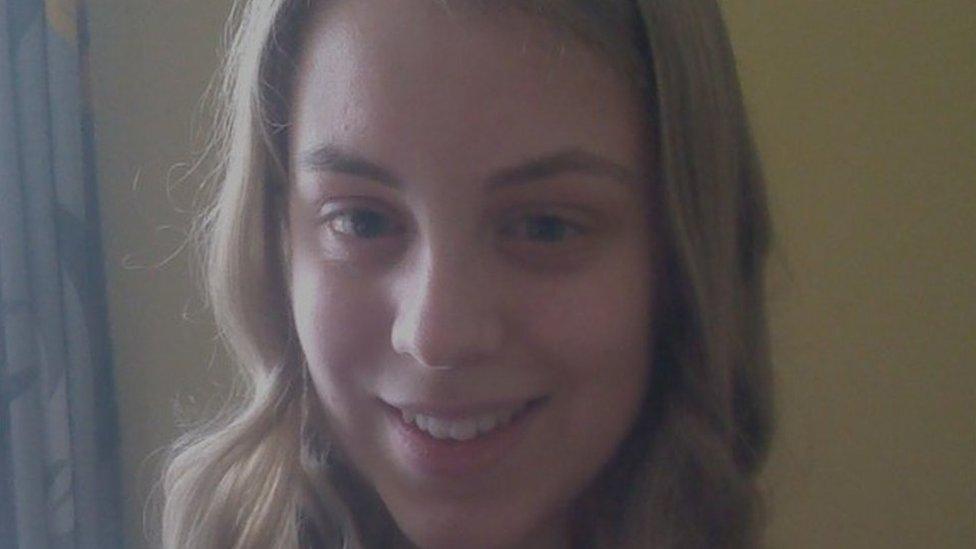
Miss Abrahart had made a previous suicide attempt in the winter term before her death in April 2018
A spokesperson for the university said: "We would like to make it clear that this appeal is not against the Abrahart family, nor are we disputing the specific circumstances of Natasha's death. We remain deeply sorry for their loss and we are not contesting the damages awarded by the judge.
"In appealing, we are seeking absolute clarity for the higher education sector around the application of the Equality Act when staff do not know a student has a disability, or when it has yet to be diagnosed."
'Burden on staff'
The university said academic and administrative staff helped Miss Abrahart with an NHS referral, as well as suggesting alternative options for her assessment to "alleviate the anxiety she faced".
"However the judgement suggests they should have gone further than this, although Natasha's mental health difficulties had not been diagnosed," the spokesperson said.
"Understandably, this has caused considerable anxiety as it puts a major additional burden on staff who are primarily educators, not healthcare professionals."
'Worrying'
Miss Abrahart's parents said they were "unclear" why the university needed any further clarity on the application of the Equality Act.
"The judge in Natasha's case simply applied a law that has been in place for over a decade, and which the University of Bristol has had plenty of time to understand," they said.
"The fact that they still don't understand, for example, that a medical diagnosis isn't a prerequisite to complying with the Equality Act is worrying to say the least, especially as Natasha's senior tutor wrote over a month before her death 'this does seem to be a genuine case of some form of social anxiety'."
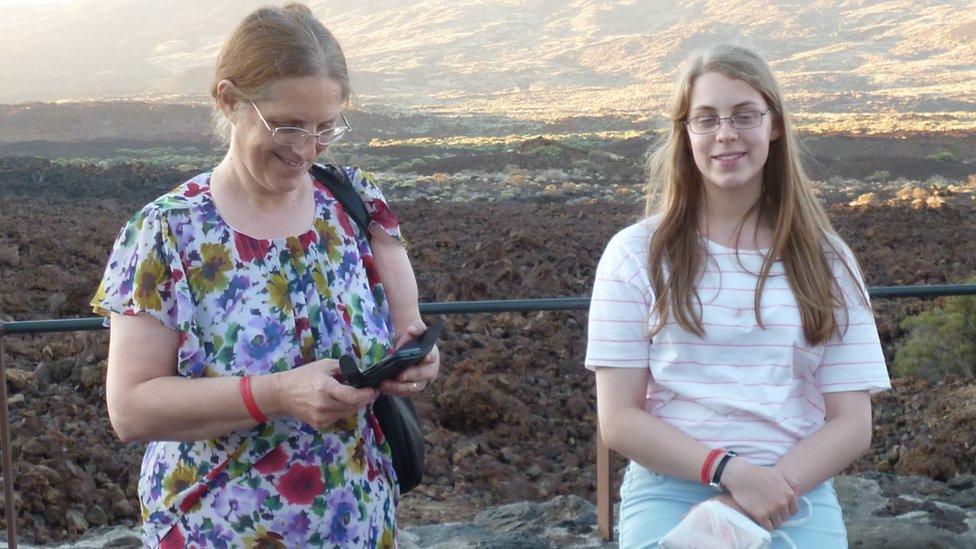
Miss Abrahart's mother Maggie (left) and father Bob have called for change
In his original judgement, external, the judge said: "In my judgement there can be no doubt that there was direct discrimination, especially once the university knew or should have known that a mental health disability of some sort was preventing Natasha from performing."
In the judgement, he found the university breached its duties to make reasonable adjustments to the way it assessed Miss Abrahart and treated her unfavourably because of the consequences of her disability.
He found these breaches led to the physics student's death, noting that "it was accepted by the medical experts that the primary stressor and cause of Natasha's depressive illness was oral assessment".
An inquest into Miss Abrahart's death in May 2019 found she had been neglected by mental health services but the coroner ruled the adequacy of support provided by the university was outside of the inquest's scope.
If you have been affected by any of the issues in this story, you can visit the BBC's Action Line.

Follow BBC East Midlands on Facebook, external, on Twitter, external, or on Instagram, external. Send your story ideas to eastmidsnews@bbc.co.uk, external.
- Published6 October 2022
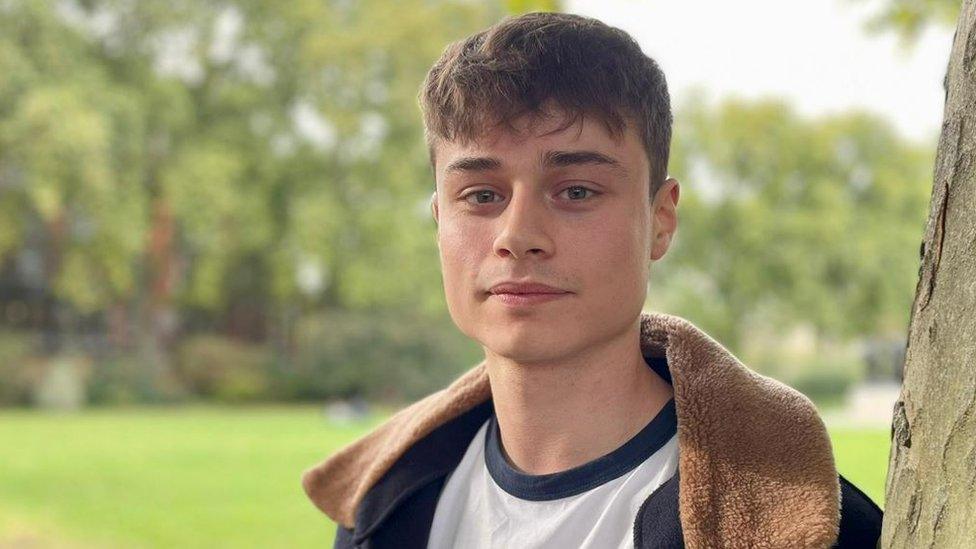
- Published21 May 2022

- Published20 May 2022
